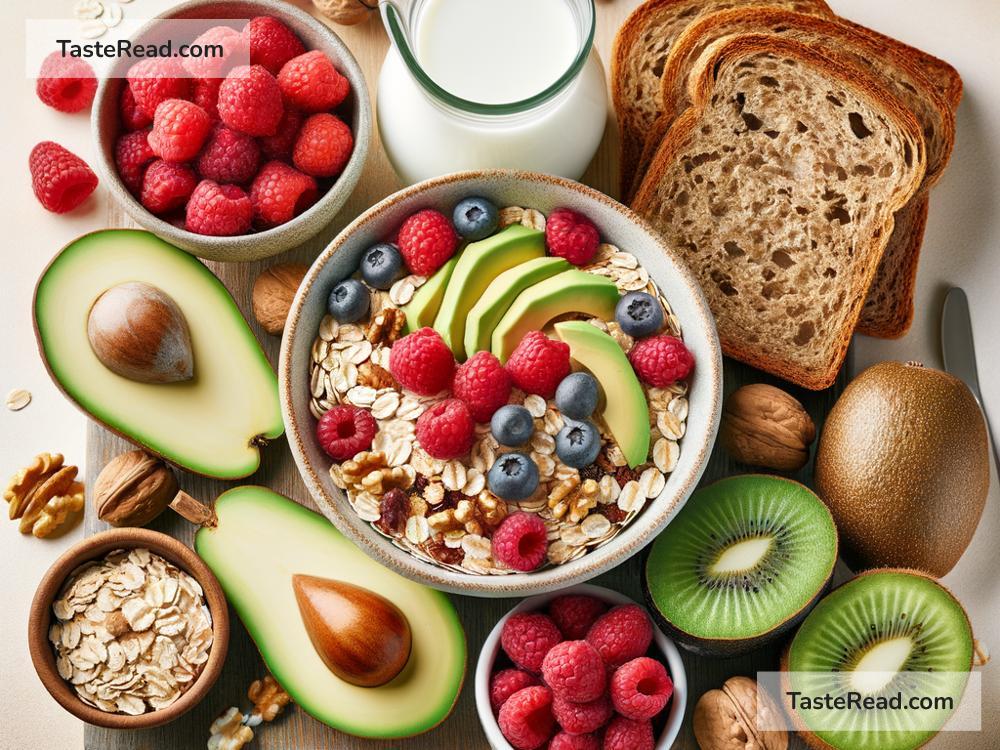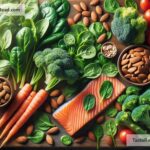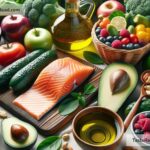Foods That Reduce the Risk of Constipation
Constipation can be an uncomfortable and frustrating issue for many people. It happens when stools become hard, dry, and difficult to pass, often leading to bloating, discomfort, and irregular bowel movements. The good news is that making changes to your diet can help reduce the risk of constipation. Some foods contain nutrients and compounds that improve digestion and keep things moving smoothly through your digestive tract. In this article, we will explore some of the best foods you can eat to prevent constipation.
Why Does Constipation Happen?
Before diving into the foods, it’s helpful to understand why constipation happens. Common causes of constipation include:
- Low fiber intake: Fiber is an important nutrient that adds bulk to stools and helps them pass more easily.
- Not enough water: Dehydration can lead to harder stools because the intestines absorb water from your food to stay hydrated.
- Lack of physical activity: Sedentary lifestyles can slow down digestion.
- Certain medications or health conditions: Medications like painkillers or health issues such as IBS (irritable bowel syndrome) can contribute to constipation.
Now, let’s look at foods that can keep your digestive system healthy and reduce the risk of constipation.
1. Fruits
Fruits are one of the best sources of dietary fiber and water, making them ideal for preventing constipation. Here are a few fruits to try:
- Apples: Apples are rich in soluble and insoluble fiber. The skin of apples contains most of the fiber, so eat them unpeeled if you can.
- Pears: Pears are another fruit packed with fiber. They also contain sorbitol, a natural sugar alcohol that softens stools and promotes bowel movements.
- Prunes: Prunes—or dried plums—are famous for their laxative effect. They contain fiber and sorbitol, which help ease constipation.
- Berries: Strawberries, blueberries, raspberries, and blackberries are full of fiber and antioxidants that promote gut health.
2. Vegetables
Vegetables are not only nutritious but also high in fiber and water content. These qualities make them a must-have in your diet to fight constipation. Try adding these veggies to your meals:
- Spinach: Spinach is a green leafy vegetable that’s rich in fiber and magnesium, a mineral that helps with muscle contractions in the digestive tract.
- Broccoli: Broccoli contains both fiber and water that contribute to smooth digestion. It’s also high in antioxidants that support a healthy gut.
- Carrots: Carrots are crunchy and full of fiber. Whether cooked or raw, they help keep your digestive system moving smoothly.
- Sweet Potatoes: Sweet potatoes are a tasty and versatile option for getting fiber into your diet. They also contain starches that can help regulate stools.
3. Whole Grains
Switching from refined grains to whole grains is a simple way to increase your fiber intake. Whole grains are less processed and retain more of their natural nutrients. Here are a few examples:
- Brown Rice: Unlike white rice, brown rice contains the bran and germ, which are rich in fiber.
- Oatmeal: Oats contain a type of soluble fiber called beta-glucan, which helps keep stools soft and easy to pass.
- Quinoa: Quinoa is packed with fiber and protein, making it a great choice for digestion and overall health.
- Whole-Wheat Bread and Pasta: These are better options than white bread or pasta because they contain more fiber to support digestion.
4. Legumes
Legumes are a fantastic source of fiber and protein. They’re highly versatile and can be used in soups, salads, stews, or side dishes. Examples include:
- Beans: Black beans, kidney beans, and pinto beans are all high in fiber and excellent for relieving constipation.
- Lentils: Lentils are quick-cooking legumes loaded with fiber and nutrients like iron and magnesium.
- Chickpeas: Chickpeas—also known as garbanzo beans—are a great addition to salads or hummus recipes.
5. Seeds and Nuts
Seeds and nuts contain healthy fats and fiber that promote good digestion. Some great choices are:
- Chia Seeds: Chia seeds absorb water and form a gel-like substance in your gut, which can help regulate bowel movements.
- Flaxseeds: These tiny seeds are high in fiber and omega-3 fatty acids, both of which are good for digestion.
- Almonds: Almonds are a fiber-rich nut that makes a great snack or addition to meals.
6. Probiotic Foods
Probiotic foods contain live, beneficial bacteria that support gut health and digestion. These bacteria can help regulate your bowel movements and prevent constipation. Some probiotic-rich foods include:
- Yogurt: Yogurt with live cultures is an excellent source of probiotics that support digestive health.
- Kefir: Kefir is a fermented milk drink that contains even more probiotics than regular yogurt.
- Sauerkraut: Fermented cabbage, known as sauerkraut, is another great option to improve digestion.
7. Hydrating Foods
Besides fiber-rich foods, staying hydrated is essential to keeping your bowel movements regular. Foods with high water content help prevent dehydration and support digestion. Examples include:
- Cucumbers: Cucumbers are mostly water and pair well with many meals.
- Watermelon: This refreshing fruit contains plenty of water and small amounts of fiber.
Final Tips for Preventing Constipation
While eating these foods can help prevent constipation, it’s also important to develop healthy habits:
- Drink plenty of water throughout the day.
- Exercise regularly to encourage digestion.
- Avoid excessive consumption of processed foods, which tend to be low in fiber.
By adding fiber-rich, hydrating, and probiotic foods to your diet, you can take a big step towards reducing the risk of constipation. Make small changes to your meals and snacks, and your digestive system will thank you!


